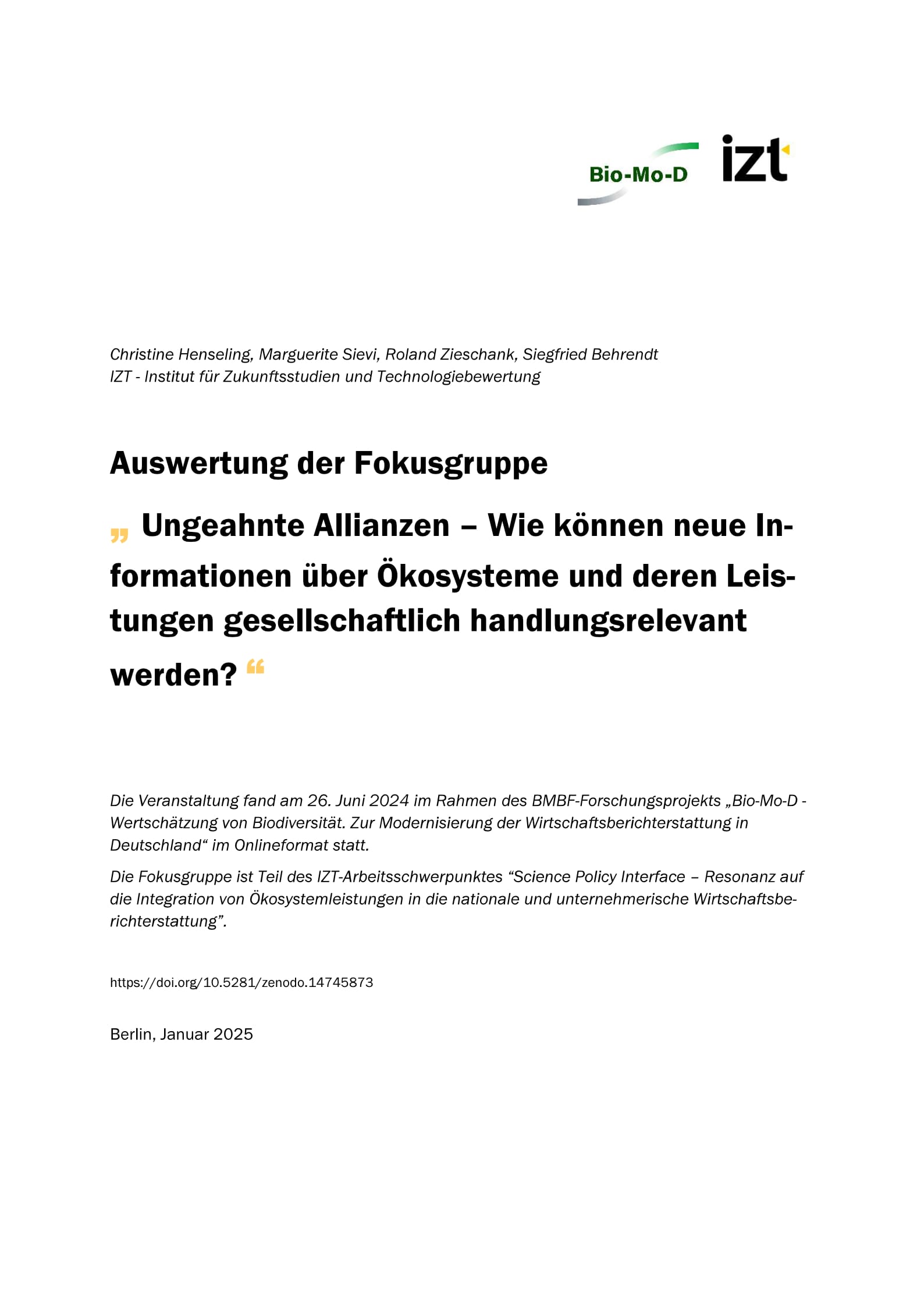Unexpected alliances - How can new information about ecosystems and their services become relevant for social action?
Abstract
As part of the Bio-Mo-D research project, focus groups were held to gain a better understanding of the views of key stakeholders on the modernisation of economic reporting at national and corporate level.
The research team sees this reorganisation of economic reporting as an important building block for the inclusion of natural assets in political and entrepreneurial decisions as well as a new basis for the appreciation of biodiversity, not least as part of an expanded prosperity reporting.
The focus group "Unexpected alliances - How can new information about ecosystems and their services become relevant for social action?" was held digitally on 26 June 2024 and moderated by Siegfried Behrendt and Christine Henseling (IZT). Nine people from various organisations and institutions took part in the discussion. The event was divided into a short introductory section and a discussion section. In a 10-minute presentation, Roland Zieschank (IZT) introduced the topic and presented the concept of ecosystem services (ES) as well as current developments in reporting on ES at national and company level. A series of key questions were then discussed with the invited stakeholders. The focus was on new developments in ESS reporting systems and the associated opportunities and challenges for the further development of the economy and society. One key question is how the new information systems can be supported in their implementation and institutionalisation (in parallel to improving the data situation and clarifying specific methodological issues). The aim of the discussion round was to discuss with a select group of stakeholders from science, politics, associations, business and the media what measures could be taken to make ESS reporting systems more usable.
Representatives from the following organisations and institutions took part: OECD Berlin Centre, Bioeconomy Council, Naturschutzbund Deutschland e.V., WWF Germany, Deutscher Verband für Landschaftspflege e.V., Federal Ministry for the Environment, Nature Conservation, Nuclear Safety and Consumer Protection, Deutsche Gesellschaft für Internationale Zusammenarbeit, Tagesspiegel Background Sustainable Finance, Climate & Company.
The results of the discussion are organised as follows:
- Stakeholder activities in the area of ESS
- How do you assess the development?
- Opportunities and potential of ESS reporting
- How can the use of ESS information be promoted?
- Could "unprecedented alliances" help to strengthen the ESS approach?
- How could such alliances be organised in the future?
- Summary and conclusions.
